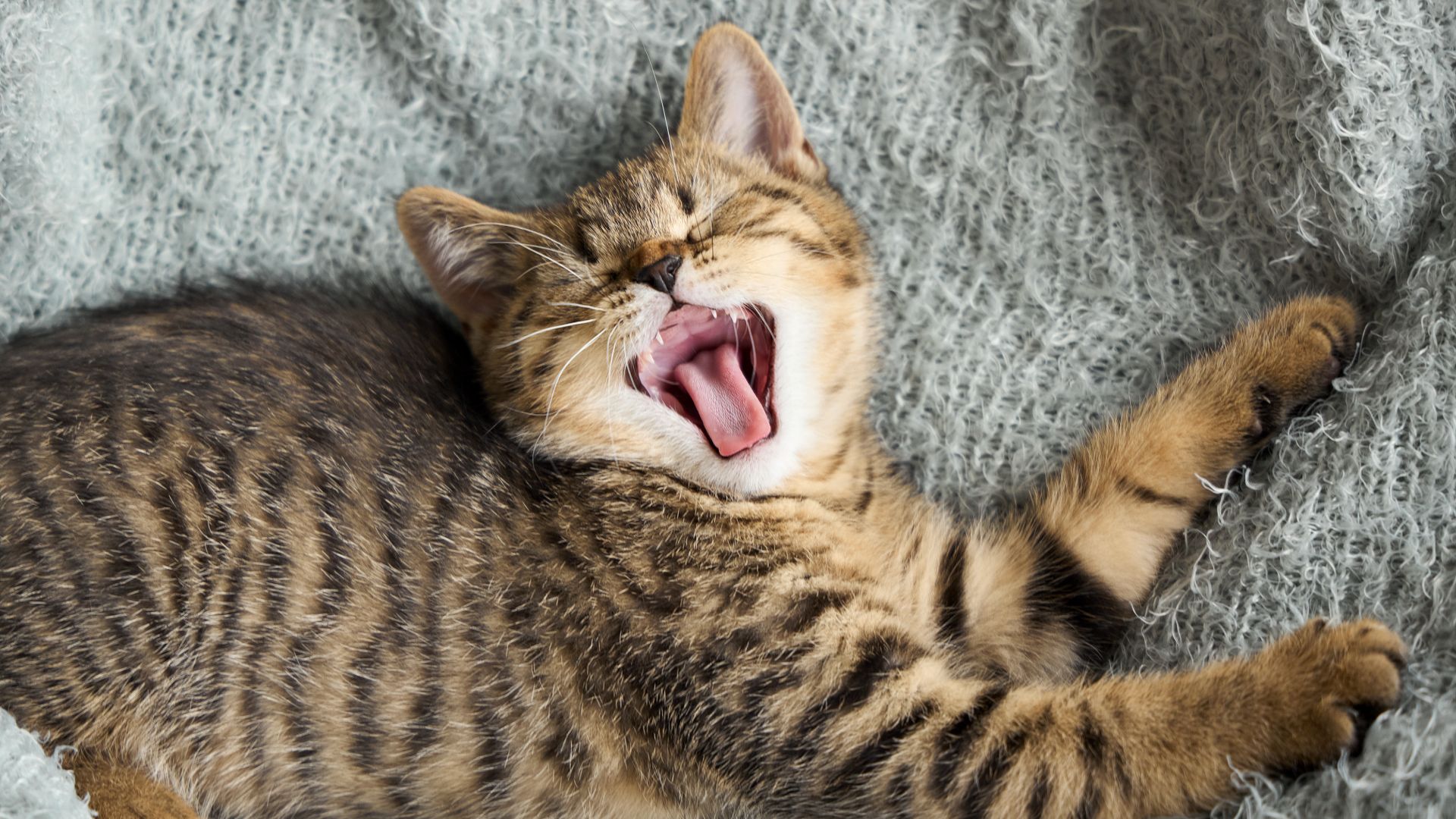
We know that children’s chompers fall out after a few years, but if you’ve recently welcomed a baby kitty into your home you might be wondering: do kittens lose their teeth? And, If they do, when does it happen and where do the little teeth actually go?
Knowing the answer can be useful. It could play a part in deciding on the best kitten food to feed your pet and it will help you to better understand the early stages your cat will go through en route to adulthood. You will be able to address issues such as kitten teething and learn answers to other questions, such as when can kittens eat dry food?
So let’s take a look at the issue of kitten “baby” teeth and whether or not cats have – and then subsequently lose – them.
Do kittens have baby teeth?
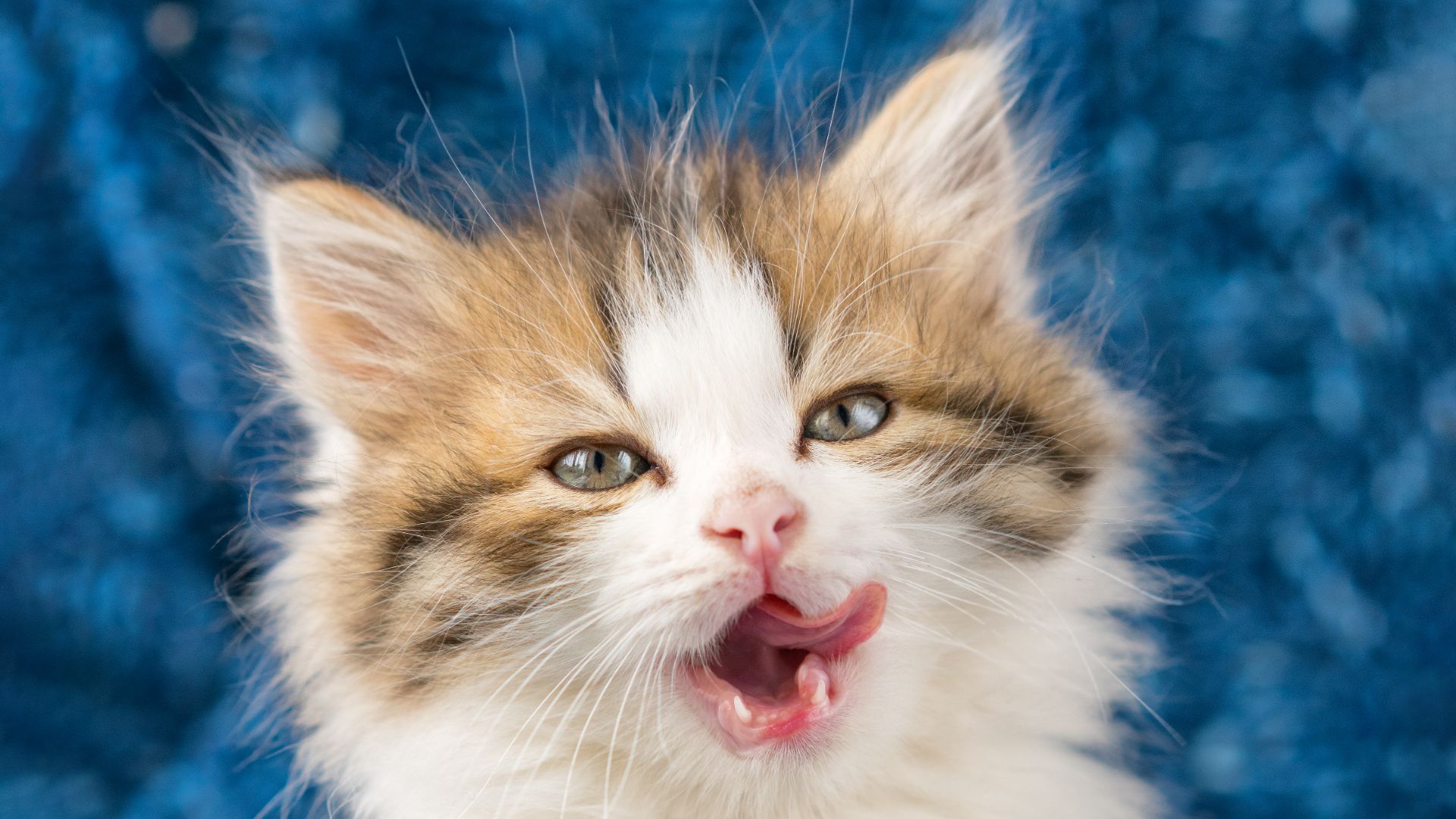
Kittens are born without teeth but they begin growing them after two to four weeks. The incisors and canines appear first, followed by pre-molars and all of a kitten’s 26 teeth have emerged by the age of five to eight weeks.
These are deemed to be baby teeth – although the correct name for them is deciduous teeth. The answer to do kittens lose their teeth? It’s a yes.
In the very same way that adult humans don’t walk around with tiny teeth, neither do adult cats. But that’s not to say the baby teeth aren’t effective. They may be smaller and more delicate than full-size cat teeth, with a slightly translucent appearance, but they're also very sharp. You may discover this to your cost if your kitten is biting you during playtime.
When do kittens start losing their baby teeth?
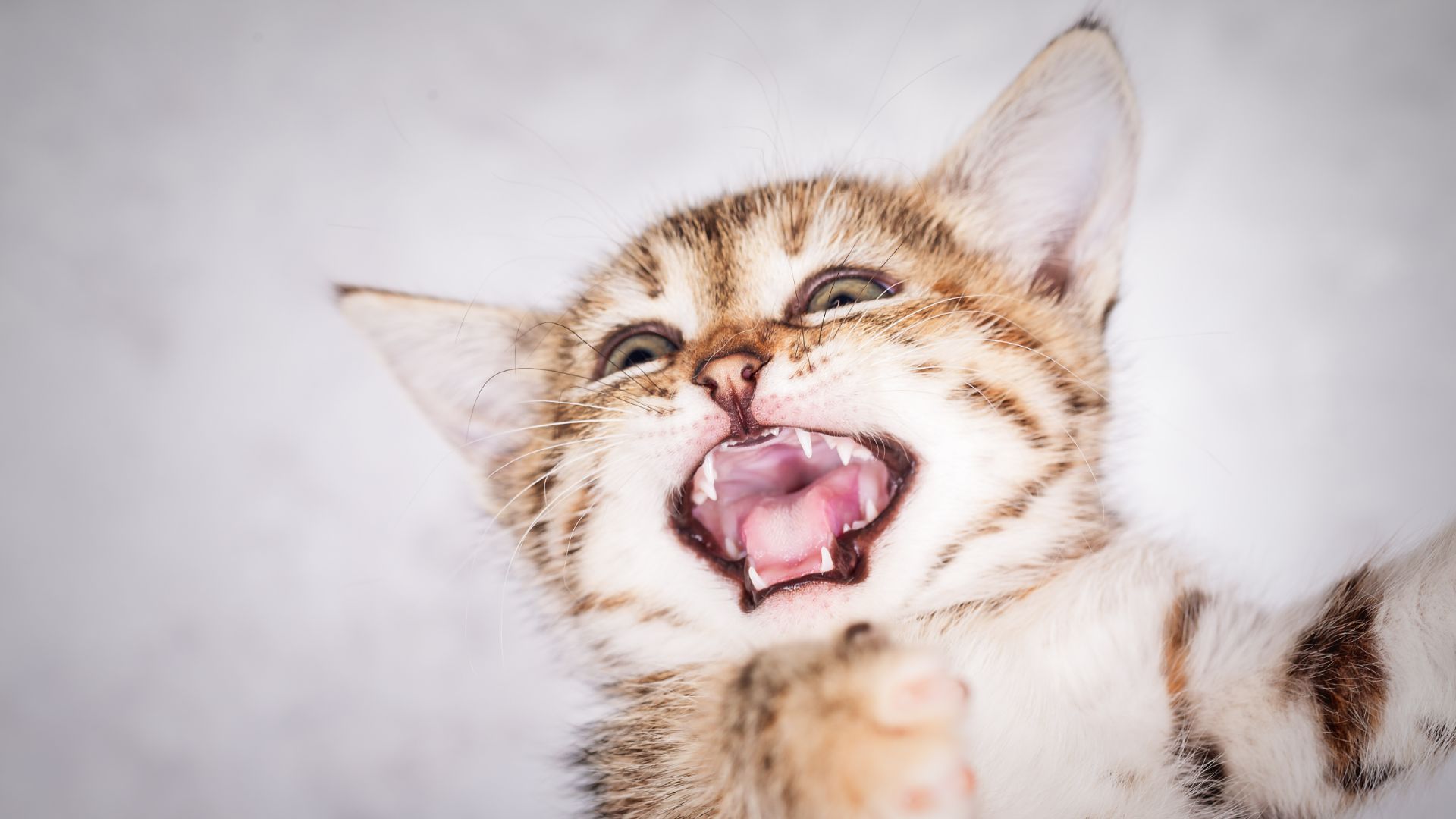
Kittens only retain their deciduous teeth for about four weeks. They begin to fall out gradually after 12 weeks to make room for adult teeth as and when they begin to emerge beneath.
The first incisors should start to appear from around three-and-a-half months of age and it takes another month or so for all 12 of them to emerge. A cat’s four canines (that is, its fangs) should show up at five months, while its four molars come in between four and five months.
The last cat teeth to appear in full are the 10 premolars. They begin to erupt at about four-and-a-half months. By six months, all 30 adult teeth will have emerged and a kitten's baby teeth should be long-gone.
Where do kittens’ teeth go when then fall out?
Baby teeth either fall out of the mouth or they’re swallowed. If the latter happens, don’t worry – the tooth fairy will be understandably miffed at having missed out on another addition to her collection but baby teeth are small enough to be consumed.
Companion animal vet Dr Rebecca MacMillan says: “Most owners won’t even notice when their kitten starts losing their baby teeth. Kittens usually teethe without any problem, but if you’re observant there are a couple of things you might see. You may find a little blood on their toys or, very occasionally, a tooth in their bed or food bowl.
“It is perfectly fine for a kitten to swallow a tooth; it happens all the time!” she continues. “In all my years in practice, I have never seen a kitten with a problem following the ingestion of a tooth. Most teeth are swallowed, it is uncommon to find loose teeth in your home. These will pass through the digestive tract without issue.”
What do I do if my kitten’s baby teeth are not falling out?
Occasionally the odd deciduous tooth may not fall out properly, which can mean that the adult tooth replacing it won't grow correctly, or it might get cracked. It's an unlikely situation but one that's worth keeping an eye out for; if your kitten's mouth seems a little overcrowded with the appearance of two rows of teeth, you should get it checked out by a vet who can look for problems and extract the offending baby teeth if necessary.
Do kittens hurt when teething ?
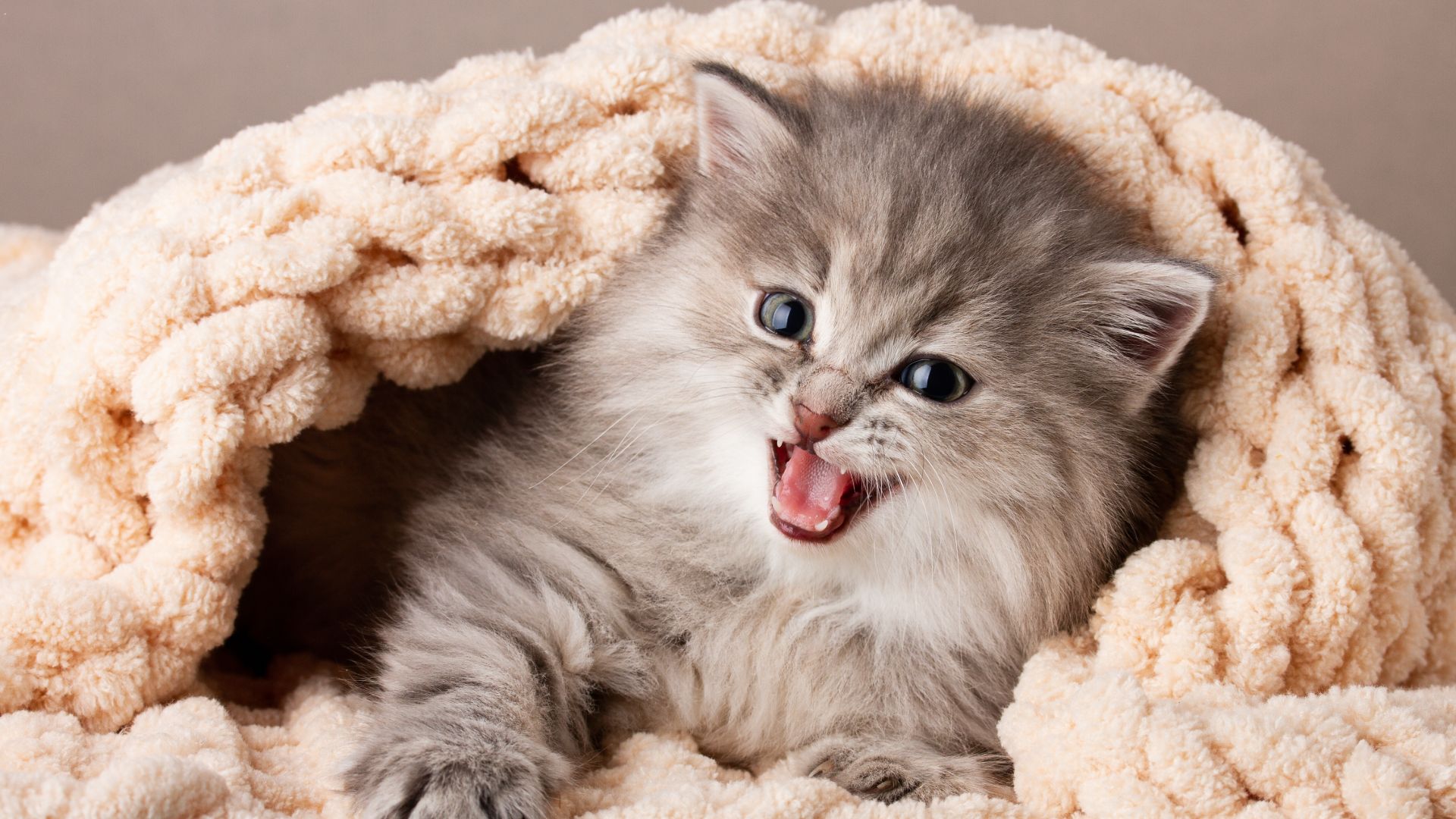
The answer to this question depends on your kitten. Some take the emergence of teeth in their stride while others may find the kitten teething process a little more challenging. Having sharp teeth erupting through your gums can't be much fun and there are certain signs of distress.
Excessive chewing: Your kitten may react by eating less or starting to chew things to relieve their discomfort. Usual hotspots are toys, furniture, your fingers and their own paws.
More drooling: If you’re wondering why is my cat drooling then this could be the answer. During teething kittens might drool and paw at their mouth.
Sore gums: You may notice that your kitten’s gums appear a little inflamed and they could be more tentative when eating, especially dry food.
Greater grumpiness: A kitten may be more grumpy than usual and perhaps even groom themselves less often.
These are all natural reactions to teething that should pass once your kitten's teeth have come through. But that's not to say you shouldn't try to help your kitten out to make the teething process less traumatic. Check out the best kitten teething toys and maybe consider switching to the best wet cat food to make it easier and more comfortable for kittens to chew.
If it seems your kitten is in a lot more pain than it should be, err on the side of caution and take it to the vet to be checked out.
How can I help my teething kitten?
Thankfully, there are ways to help your kitten manage teething pain. Dr MacMillan says: “You can support your kitten through this time by providing them with a variety of toys to chew on. Offer different textures such as hard rubber as well as fabric toys.
“Some kittens may get comfort by chewing on a toy that has been chilled in the fridge or freezer first. If your kitten is struggling with their dry food, you could try offering more wet food or soaking their dry kibbles in a little warm water to make them easier to tackle.”
Dr MacMillan also offers a word of caution. “You should also make sure any valuable possessions are kept well out of reach, to avoid them accidentally being chewed,” she adds. “Similarly, any dangerous items like loose electrical cables or plants cats are allergic to should be tidied away, out of reach.”
When should I seek a vet’s advice?
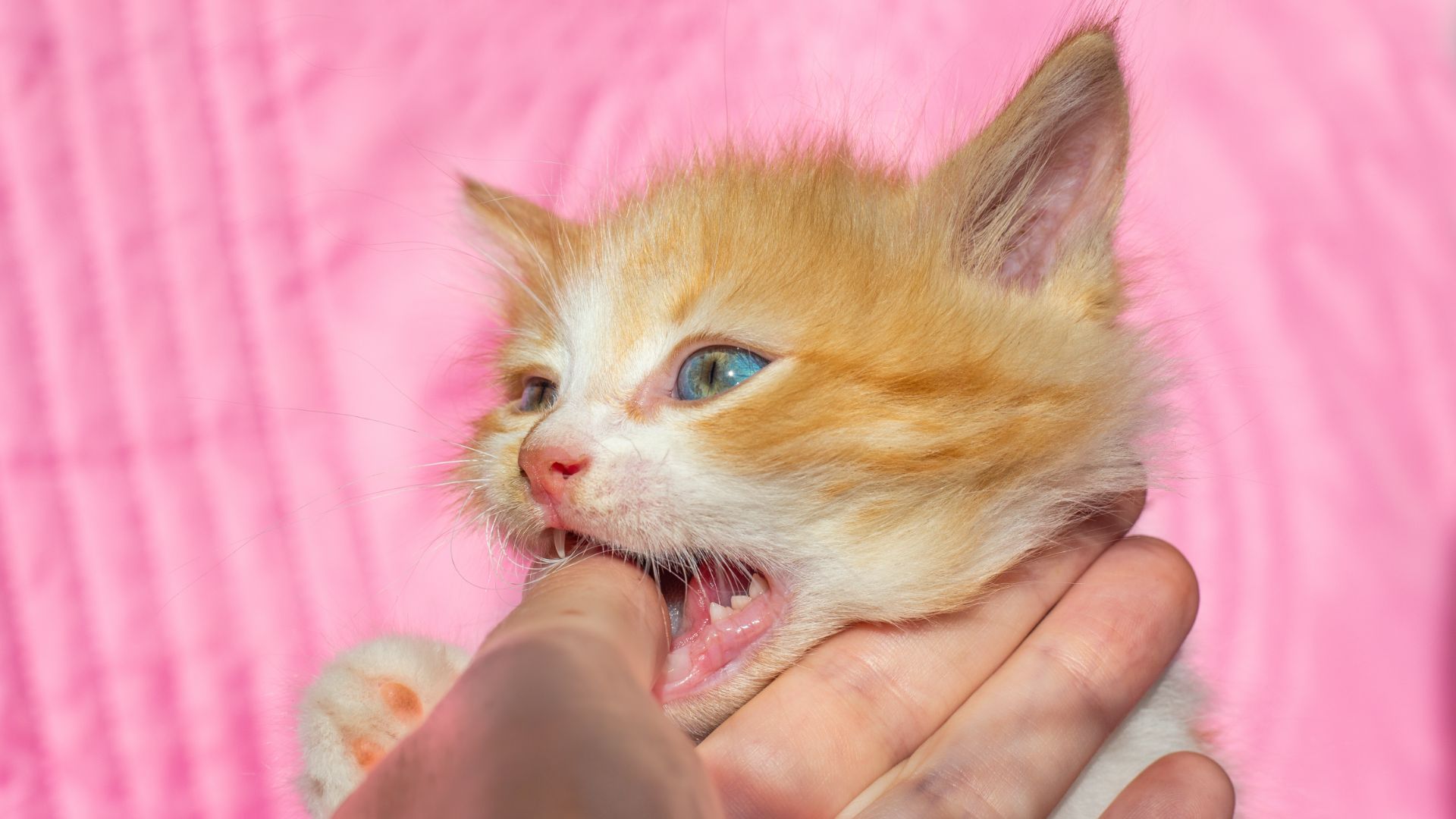
For a kitten, losing baby teeth and growing a new set of adult cat teeth over an impressively short period is just a normal part of growing up, and usually, you'll be able to simply let it get on with it. But if it seems your kitten is in a lot more pain than it should be, err on the side of caution and take it to the vet to be checked out.
Keen to make the teething process as pain-free as possible for your little one? The best kitten teething toys will help you through.







